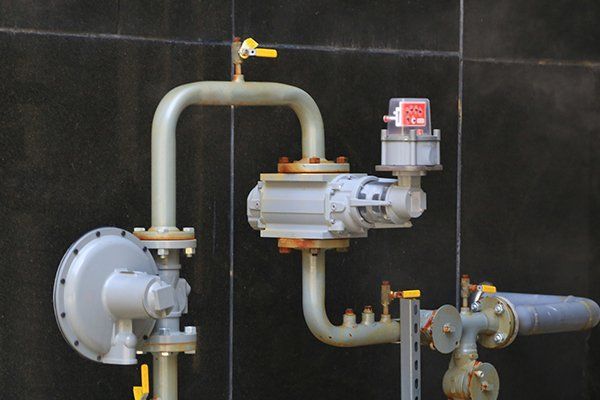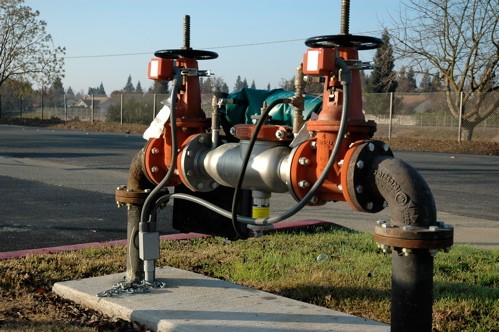Just how do you feel on the subject of Backflow Assembly Testing?

Yes, you need to backflow test your residence's water system to ensure that the water is without contaminants and dangerous degrees of chemicals. Due to the tools required and space for error, you must not try to execute backflow testing on your own. We recommend that you call an expert plumber every number of years to check your water.
Heartburn Can Influence Both You and also Your City
Since dangerous heartburn can impact the public water supply in addition to a solitary building, lots of cities establish backflow standards. Fortunately, modern cities have backflow tools in position that safeguard the water supply that comes from the majority of homes and business homes. The actual threat comes from irrigation systems, which can hurt the water with toxic fertilizers, manure, and other chemicals.
What Triggers Backflow?
A normal source of heartburn is a loss of water stress that creates the water to siphon back right into the water. An instance is clearing out a paint bucket making use of a hose. You load the paint pail up with water, leaving the tube in the bucket. After some time, there is a loss in water stress and also the hose begins to draw the water back into the supply of water. As you can think of, there are now chemicals from the paint that are entering the water, potentially presenting a danger. Numerous individuals are not also conscious of heartburn testing, yet there are several factors why it's so important.
Backflow Testing is Needed by Law in Particular Cities
Depending on where you live, you may in fact be called for by legislation to backflow examination your legislation. Iowa City maintains a record of all buildings served by the city's water supply.
You Can Protect Against Backflow
The primary purpose of a heartburn tool is to protect against water from flowing in reverse right into your water supply. Plumbing professionals install the gadget on the pipelines in your residence to guarantee that the water just flows in the proper direction.
What is Backflow?
In other words, heartburn is when water moves upwards-- the opposite instructions in the plumbing system. This is additionally known as "backpressure." When the water moves in this instructions, it can mix with harmful contaminants as well as posture a threat.
Call a Plumber to Examine for Heartburn Before It is Too Late
While it might seem grim, infected water can bring about terrible microbial and viral infections that are challenging to treat. If there are any unsafe chemical degrees, a plumbing business can rapidly test your house's water to establish. The small financial investment is if you can prevent the misery that comes from consuming polluted water. And also if you do uncover that your water has high degrees of toxic substances, a plumber can quickly install a backflow avoidance tool.
Yes, you need to backflow test your house's water supply to make certain that the water is complimentary of toxic substances as well as damaging levels of chemicals. Lots of cities establish backflow guidelines because hazardous heartburn can impact the public water supply in addition to a solitary building. A typical cause of heartburn is a loss of water stress that triggers the water to siphon back right into the water supply. After some time, there is a loss in water pressure and the tube begins to draw the water back into the water supply. The main objective of a heartburn tool is to stop water from streaming backwards right into your water supply.
Backflow Testing: What Is It, and Why Is It Necessary?
What Is Backflow?
Backflow is exactly what you might imagine this somewhat gross-sounding word to mean. It is contaminated water that has reversed flow, and as a result, enters into the clean water lines of homes and businesses. Backflow is typically caused by a significant change in water pressure. This can be due to a water main break, frozen pipes or an unexpectedly high demand on the water system. It can occur at any cross-connection between clean and dirty water in residential, commercial or industrial water lines. And the worst part – backflow can contain hazardous materials like human waste, pesticides or chemicals. Needless to say, it poses very, very serious health concerns, not to mention the potential for a heap-load of expensive stress!
Backflow Prevention and Testing
In order to safeguard against backflow in standing structures, a backflow prevention device should be installed by a trusted team of professionals. Once installed, if there should ever be an unexpected or dramatic change in water pressure, the device will prevent backflow from entering into the clean water supply system. But, again, it’s important that this device is properly installed by a professional so that they can test it and ensure that the clean water line remains contaminant free. This really is key.
While personal standards and responsibilities should maintain certain routine testing requirements, there are already municipal codes in place that require annual testing of these backflow prevention devices. This ensures that they are functioning properly and that no hazardous contaminants are spilling out into the clean water supply. If, however, testing of any device is not completed on time, you should know that a property or business’ water supply might be interrupted, and the property owner might even face fines. So, to avoid this from happening to you, we recommend scheduling a backflow test well in advance.
Fortunately, here at Tritan, we can help schedule and carry out backflow testing for your property. We provide a variety of backflow-related services, including prevention device installation and testing. Call us today and make sure that this stressful problem doesn’t happen to you and your property or business.
https://www.tritan-plumbing.com/blog/2018/february/backflow-testing-what-is-it-and-why-is-it-necess/

I stumbled upon that entry about Backflow Prevention while doing research the search engines. Liked our entry? Please share it. Let other people check it out. Kudos for your time. Please check our website back soon.
Hot water issues?